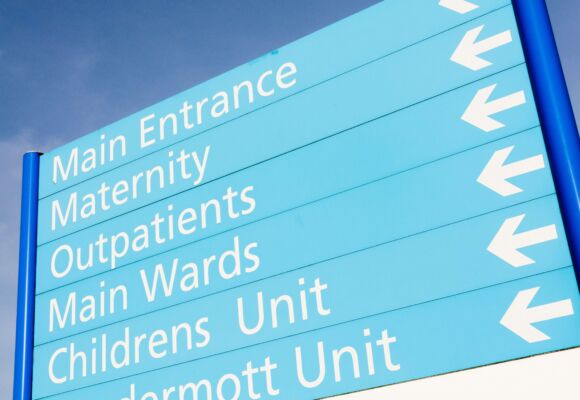In simple terms, you can sue the NHS for Medical Negligence. This can be for a variety of reasons, but can be a stressful experience. Waldrons Solicitors can help to ensure the best outcome for you. Contact us today!
What constitutes Medical Negligence?
Medical Negligence is when a health professional breaches their duty of care towards you which directly causes you to suffer addition harm. This breach could be a misdiagnosis, incorrect treatment or a medical mistake on their behalf.
Medical or Clinical Negligence can occur at any point in your dealings in a healthcare environment. Medical Negligence occurs when you have received (or not received) treatment that has resulted in an existing condition worsening or a new injury that could have been avoided both physically and psychologically. If this has happened to you, you have a case for Medical Negligence.
Some of the most common cases of Medical Negligence include:
- Misdiagnosis of cancer
- Delayed diagnosis of conditions
- Errors during surgery
- Clinical Negligence – Instances where the incorrect treatment or medication is given
- Birth injuries to both the mother and infant
- Hospital-acquired infections
- Errors during referral
- Lack of warning related to risks before a procedure
- Death
Medical Negligence within the NHS can occur in all settings, including GPs, hospitals, dentists, and doctors.
How Do you Sue the NHS for Negligence?
1. Understand Your Rights
When you use the NHS, you should expect that the service that you receive is competent and that the standard of care that you are receiving is reasonable. You also have the right to expect that the care you are receiving is in your best interests. Therefore, you could have a case for Medical Negligence if:
- You received a below standard level of care from what you believe to be reasonable from a competent healthcare professional, and
- That you have suffered psychological or physical harm or injury as a result of the treatment.
If you experience the above treatment, you have the right to complain to the NHS.
2. Collect Evidence
Once that you have appointed a solicitor that specialises in Medical Negligence, they will begin to gather evidence to back up your case. This evidence can comprise of a number of documents, including:
- Medical reports
- Healthcare records
- Witness statements
Once that they have all of the evidence that they can collect, the solicitor will then proceed to pursue a settlement.
3. Make a Complaint to the NHS
Before you proceed with suing the NHS, the first step is to make a complaint through the NHS Complaints Procedure. This is specifically set up to deal with patient dissatisfaction with general medical procedures. The idea is that complaints are dealt with quickly and effectively and can also help to highlight where there are problems within the service.
It is important to remember that a compensation claim can only be made through the NHS Complaints Procedure if:
- You received treatment that was negligent
- This directly caused your illness or injury
4. Appoint a Solicitor
Suing the NHS for Medical Negligence can be stressful and emotional. It can often be easier to have a solicitor that specialises in Medical Negligence to take the case on for you, represent you, and help to ensure the best outcome for you.
FAQs
Is There a Time Limit?
For Medical Negligence claims, the laws allows three years to bring Court action for Clinical Negligence claims. This is called the limitation period. This runs from the date of the alleged negligence or from when you first knew about the alleged negligence. It’s best to seek expert advice from a specialist Medical Negligence solicitor as to the time limits for your case, as they can vary from case to case.
Can I Continue to Receive the Same Care?
Yes. You can continue to be treated by the same NHS organisation or institution when claiming compensation for Clinical Negligence. Your right to access a high standard of healthcare via the NHS should not be affected by your claim.
Will the Health Care Provider at Fault Lose Their Job?
When you’re placing a claim against the NHS for Medical Negligence, you are seeking compensation for the damages or hardship that you have suffered. This is separate from any other form of action.
This means the doctor or healthcare provider may not lose their job unless the matter is reported to the General Medical Council (GMC). They can investigate your case and then take the appropriate action based on their findings. If the matter were serious, life was endangered or it happened again, they could be prevented from practicing and lose their job.
We can help you make a complaint or refer your case.
Will My Claim Make a Difference?
Yes. When you file your claim, the NHS is likely to conduct an internal investigation and take steps to ensure that the same thing doesn’t happen again. Your complaint will highlight any problem areas and protect other individuals and their families so they don’t have to suffer the same hardships as you.
Contact Waldrons Solicitors
If you’d like to learn more about making a claim against the NHS for Medical Negligence, contact us today. Our team of Expert Medical Negligence Solicitors are waiting for your call.
More information on Medical Negligence
